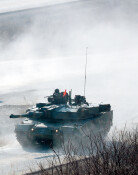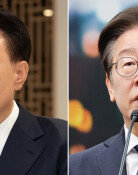CIA taps allies including Korea and Britain
CIA taps allies including Korea and Britain
Posted April. 10, 2023 07:51,
Updated April. 10, 2023 07:51
A confidential U.S. intelligence document that included circumstantial evidence of U.S. allies including South Korea on Ukraine support was released. Around 100 documents that included information on U.S. support to Ukraine, arms and Russian military action intelligence were leaked, of which at least two documents included wire-tapped conversations of high-ranking South Korean government officials. If true, this could turn out to be a grave situation that could undermine the mutual trust of both countries.
The documents include information on whether Korea’s National Security Office would provide bombshells to Ukraine. In the discussion in early March, Secretary to the President for Foreign Affairs Lee Mun-hee worried about undermining the principle of “not supporting weapons of destruction,” while Secretary to the President for National Security Kim Seong-han suggested bypassing sales of 330K 155mm bombshells via Poland. Given the specifics of the information, including the name and details of the number, it would not have been possible to acquire such information unless tapping the phone conversations or text messages.
The war in Ukraine is growing prolonged amid mounting tensions of the new Cold War. Still, tapping conversations of actively cooperating allies is no more than spying activities that undermine diplomatic relations. South Korea and the U.S. have high-level diplomatic channels, including face-to-face interactions at varying levels. Choosing to tap conversations rather than using these channels would only increase distrust between the two countries.
The U.S. tapping of allies has been raised several times. Whistleblower Edward Snowden of the NSA leaked in 2013 that the U.S. bugged conversations of at least 35 nations including former German Chancellor Angela Merkel. In 2021, there were suspicions that the U.S. used Denmark’s information surveillance network to tap conversations of high-ranking European politicians. This shows that the U.S. still attempts to illegally bug allies despite criticism and opposition.
South Korea and the U.S. share highly sensitive information including North Korea’s nuclear missile whereabouts. The volume of information required, considering the political dynamics of Northeast Asia and economic security, is expected to increase further. It will not be possible to continue meaningful information sharing and cooperation without solid mutual trust. The government should ask the U.S. explanation on this matter at the South Korea-U.S. summit scheduled at the end of this month. Based on the document released, we should trace the bugging channel to reexamine the government’s security framework.
Headline News
- Internal rebellion investigation transferred to Public Prosecutor's Office
- Gov’t to approve Yongin Semiconductor National Industrial Complex
- US conservatives rally around Trump’s third term
- Lee Hyo-song named youngest Rookie of the Year in JLPGA history
- Controversy escalates over the appointment of Constitutional Court justices







